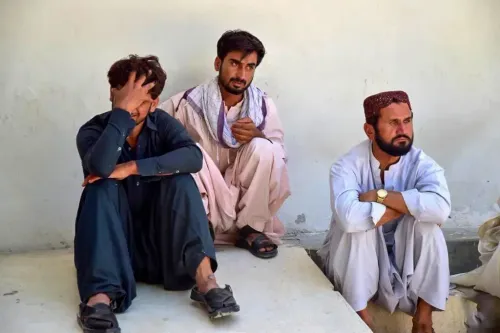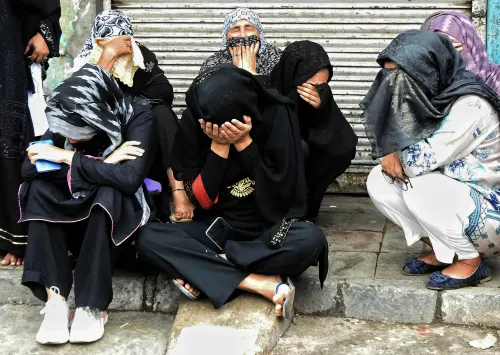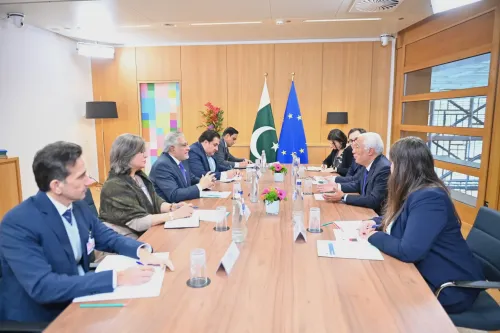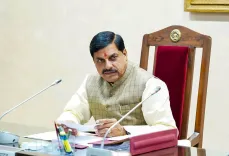Are Trump's Policy Decisions Undermining India's Strategic Interests?
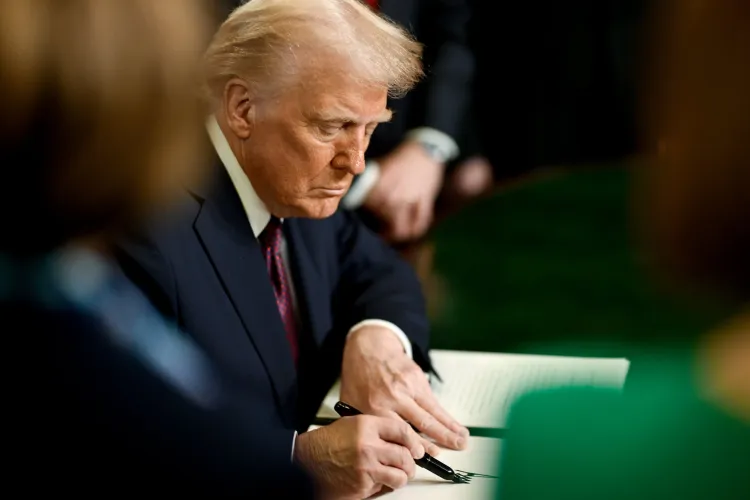
Synopsis
Key Takeaways
- Strategic contradictions in Trump's policies are straining US-India relations.
- Support for Pakistan has emboldened its actions against India.
- Trump's tariffs on Indian goods could erode trust.
- Historical context shows a stronger partnership with previous administrations.
- Continued contradictions may lead to loss of US influence.
Toronto, Aug 2 (NationPress) The South Asian policy of US President Donald Trump has been riddled with strategic contradictions, causing tension in its relationship with India. While the US views India as an essential partner in the Indo-Pacific and seeks collaboration in the region, numerous policy choices made by Trump have conflicted with India’s core strategic interests, according to a report published on Saturday.
These contradictions became evident through various recent actions, such as hosting the Chief of Pakistan's Army, General Asim Munir, at the White House, supporting an IMF bailout for Pakistan during Operation Sindoor, and frequently praising Pakistani leadership. Imran Khurshid, an Associate Research Fellow at the International Centre for Peace Studies (ICPS) in New Delhi, elaborated on these issues in the Eurasian Times.
He pointed out that US support for Pakistan has increased Islamabad's confidence, allowing it to act more aggressively against India—politically, militarily, and diplomatically—especially during critical geopolitical moments.
“If the US aspires for India to be a serious and independent partner in the Indo-Pacific, it must cease undermining India in South Asia and acknowledge its sensitivities. The US needs to move away from binary and fragmented regional frameworks in favor of a unified strategy that enhances India’s standing rather than diminishes it,” Khurshid stated.
“If these contradictions persist, the US risks not only losing India but also its former global leadership status. While Trump aims to 'Make America Great Again', his actions may lead to America becoming isolated, distrusted, and strategically insignificant,” he added.
The Indo-US relationship was previously hailed as the “defining partnership of the 21st century.” Past US Presidents, including Bill Clinton during his second term, George W. Bush, and Barack Obama, made significant efforts to build mutual trust and followed a policy of de-hyphenation between India and Pakistan, treating both nations on their individual merits.
“They generally respected India’s red lines, especially on sensitive matters like Kashmir and strategic autonomy, and refrained from viewing India through a Pakistan-centric perspective...”
Trump’s transactional approach to foreign policy, according to the author, is influenced by personal ego, erratic behavior, fragmented thought, and an obsession with trade deficits and tariffs, which has left India feeling uneasy.
Recent actions by Trump have, in the author's view, eroded the trust and warmth that once characterized the India-US relationship.
“This disregard escalated with Trump’s unilateral decision to impose a 25 percent tariff on Indian goods starting August 1, 2025, alongside vague yet punitive secondary sanctions related to India’s ongoing purchases of Russian oil and defense equipment,” he noted.
Trump has not only harmed day-to-day diplomacy but has also jeopardized America's long-term strategic vision.
“Foundational documents like the National Security Strategy and the Indo-Pacific Strategy have become weakened in practice as his actions consistently diverge from their stated objectives,” he wrote.

